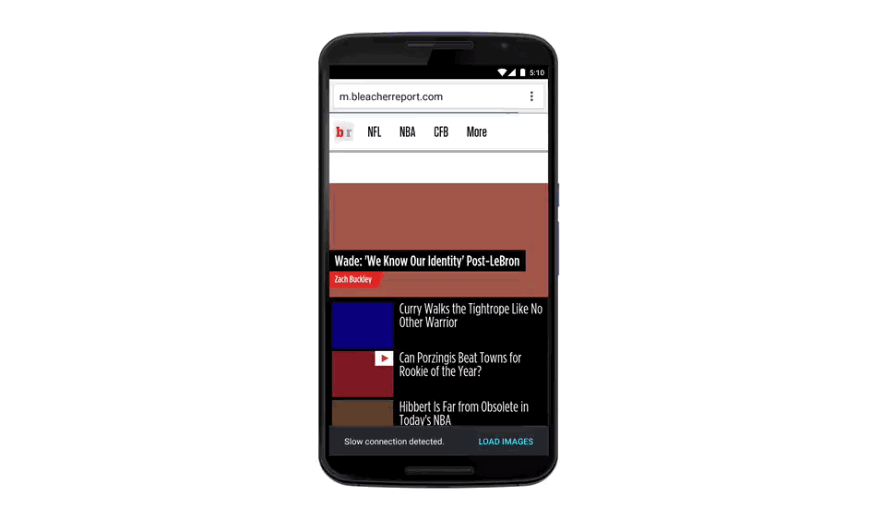
Online privacy rights are in grave danger thanks to President Trump and the Republicans. On Tuesday the House of Representatives voted to repeal Internet privacy protections.The privacy protections...
 As we spend more time online, the need for secure browsing and communications has become more and more important. Messaging apps now incorporate encryption as standard and many of your favorite websites (including this one) are moving to HTTPS to pro...
As we spend more time online, the need for secure browsing and communications has become more and more important. Messaging apps now incorporate encryption as standard and many of your favorite websites (including this one) are moving to HTTPS to pro...
 In 2007, Google bought online advertising network Doubleclick with the assurance that they would prioritize user privacy as they developed new ad products. They've kept that promise, dividing their massive database of web browsing data from the perso...
In 2007, Google bought online advertising network Doubleclick with the assurance that they would prioritize user privacy as they developed new ad products. They've kept that promise, dividing their massive database of web browsing data from the perso...
 Sure, Google has a way to reduce page load speeds, but that's limited to mobile for now. From the sounds of it, the venerable Massachusetts Institute of Technology has other plans that could make mobile and desktop web browsing about 34 percent faste...
Sure, Google has a way to reduce page load speeds, but that's limited to mobile for now. From the sounds of it, the venerable Massachusetts Institute of Technology has other plans that could make mobile and desktop web browsing about 34 percent faste...
 For years now, Google's been working hard to make the internet less dangerous. That's why the company has announced a new feature to strengthen its Safe Browsing initiative. The goal with this one, Google says, is to protect users from deceptive embe...
For years now, Google's been working hard to make the internet less dangerous. That's why the company has announced a new feature to strengthen its Safe Browsing initiative. The goal with this one, Google says, is to protect users from deceptive embe...
 If you've ever been stuck with slow mobile internet and just wanted to read an article, Google has some mighty good news. It's about to release a new feature to its Chrome for Android Data Saver mode that will only display text when it senses a slow...
If you've ever been stuck with slow mobile internet and just wanted to read an article, Google has some mighty good news. It's about to release a new feature to its Chrome for Android Data Saver mode that will only display text when it senses a slow...
You know the drill: accept the cookie, delete the cookie, empty the cookie bin, and so on. Mostly, it's an exercise used when attempting to get your mum's PC to run a wee bit faster, but if you think about it, the cookie is one of the most archaic pieces of the world wide web that's still in use today. Naturally, Google is swooping in in a bid to change the status quo, according to a new report from USA Today.
Essentially, the search giant is building an "anonymous identifier for advertising, or AdID, that would replace third-party cookies as the way advertisers track people's internet browsing activity for marketing purposes." Perhaps astoundingly, it sounds as if the project could benefit both consumers (by shielding true identities) and advertisers at the same time. Of course, pundits are concerned about the global leader in online advertising controlling the technology that tracks movements on the web, but to us, it sounds as if end users will get far more power over who sees what when compared to today's cookies.
Via: Slashgear
Source: USA Today
Each week Joshua Fruhlinger contributes This is the Modem World, a column dedicated to exploring the culture of consumer technology.
One day, Google will not be the technology giant that it is today. Consider the following:
In 1968, the Pontiac GTO was Motor Trend's Car of the Year. Today, Pontiac is a historical footnote of General Motors.
In 1981, IBM launched the PC, which became the de facto standard of personal computers, spawning hundreds of PC clones and dominating the computing market to this day. In 2005, the IBM PC business was acquired by Lenovo, and the IBM PC is no more.
While the non-final build of Opera's new browser for PC and Mac was simply called "Next," today it's chosen the more formal title of Opera 15 for its official release. There aren't any features of note that we hadn't seen in the desktop preview of the WebKit-based software (or should we call it Blink-based?), but to jog your memory, it sports a fresh design, a Discover feature for catching up on the latest news and a tweaked Speed Dial menu for quick access to your favorite corners of the internet. Also, the web-clipping Stash feature, predictive address-cum-search bar, new download manager and "Off-Road mode" for extra compression on lousy connections are all included in the final version. We ran a quick SunSpider benchmark on the Mac build of Opera 15, in which it scored 167ms, compared with 171ms in Chrome. If you're not already allied to one of the many competing browsers and feel like giving Opera 15 a try, head to the source below for the download links.
Filed under: Desktops, Laptops, Internet, Software
Via: SlashGear
Source: Opera (1) (download), (2)
Opera for desktops may be a couple of steps behind the recently finalized Android version, but it's coming along nicely. A preview build of the now WebKit-based browser (or, technically, Blink-based) is available to try on Windows and Mac with a bunch of features which in some ways look similar to other browsers and add-ons, but which also do things a bit differently:
Filed under: Desktops, Internet, Software
Source: Opera Next for Windows, Opera Next for Mac, Opera Mail